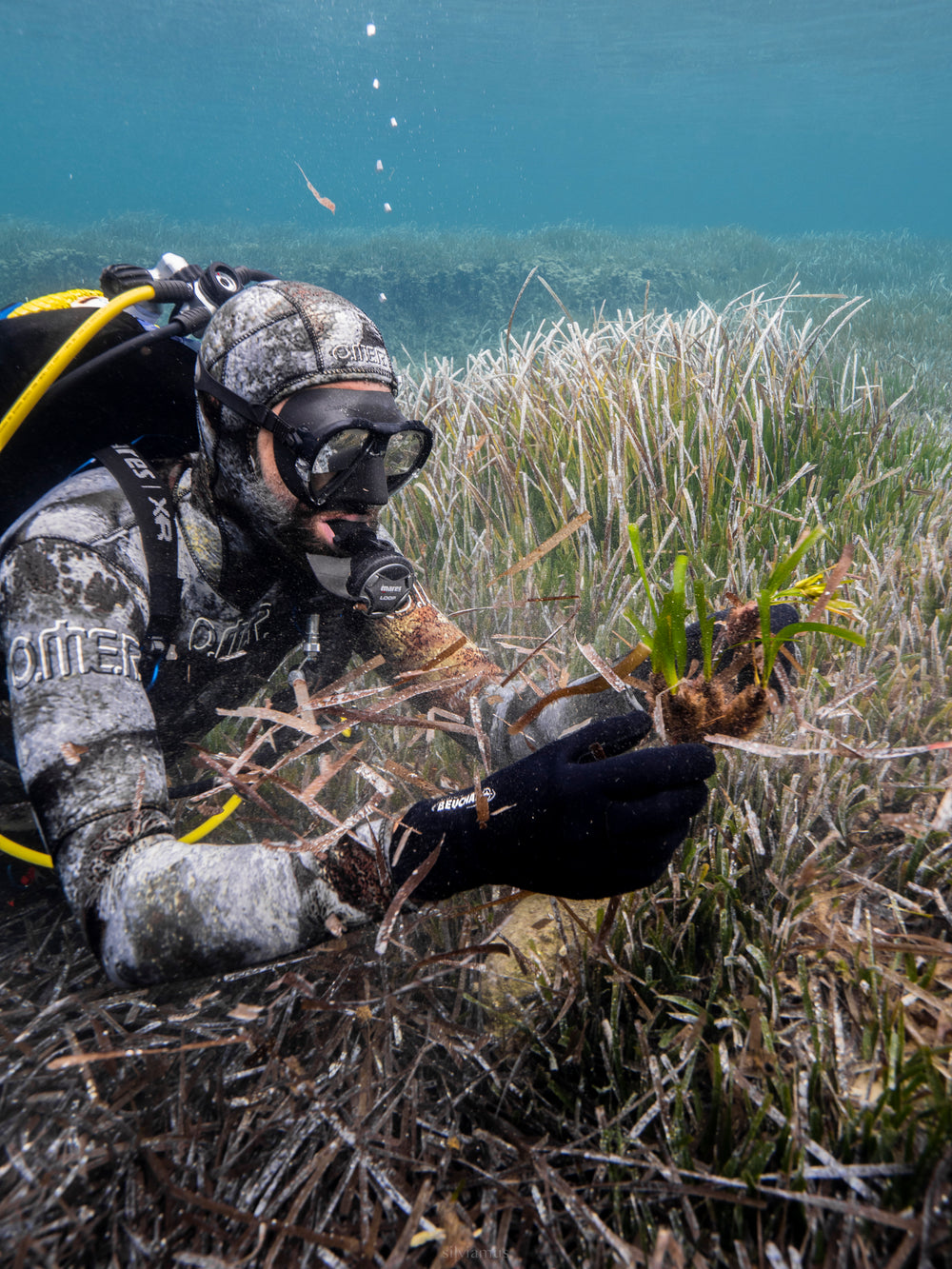
Seagrass Restoration
Seagrass plays a crucial role in maintaining the well-being of coastal communities. They help to create clear waters teeming with life, which are essential for sustainable tourism. They also serve as vital habitats that replenish fisheries, act as carbon sinks, and protect against climate change impacts such as coastal erosion from storms.
Similar to other blue carbon ecosystems, seagrasses have proven to be incredibly efficient in sequestering carbon, up to twice as much as the average terrestrial forest.
As one of the most productive ecosystems in the world, seagrasses absorb carbon dioxide from the ocean and atmosphere and store it in their biomass, where it accumulates over time, and is eventually stored in the soil for millennia.
Seagrass and seaweed species are also known as habitat-forming species, meaning they create a habitat that provides resources such as food or shelter that were previously scarce.
A window in the sea, into what can be.
SeaTrees is working in collaboration with The Cleanwave Foundation, a Mediterranean based non-profit, on their MedGardens Seagrass and Macroalgae Restoration Project which seeks to holistically restore the marine ecosystem surrounding the well known tourist destination of Mallorca, in the Balearic Islands of Spain. This is our first-ever seagrass restoration project, supporting the restoration of one of three sites at Formentor, covering an area of 53,820 sq-ft.
The holistic project employs a variety of methods to achieve its goals, including research, marine debris removal, community engagement through education, hands-on training and volunteer opportunities, educational signage, and the promotion of a blue economy. The project has also collaborated with local authorities to implement more sustainable mooring equipment, which is vital in an area with high boat traffic.
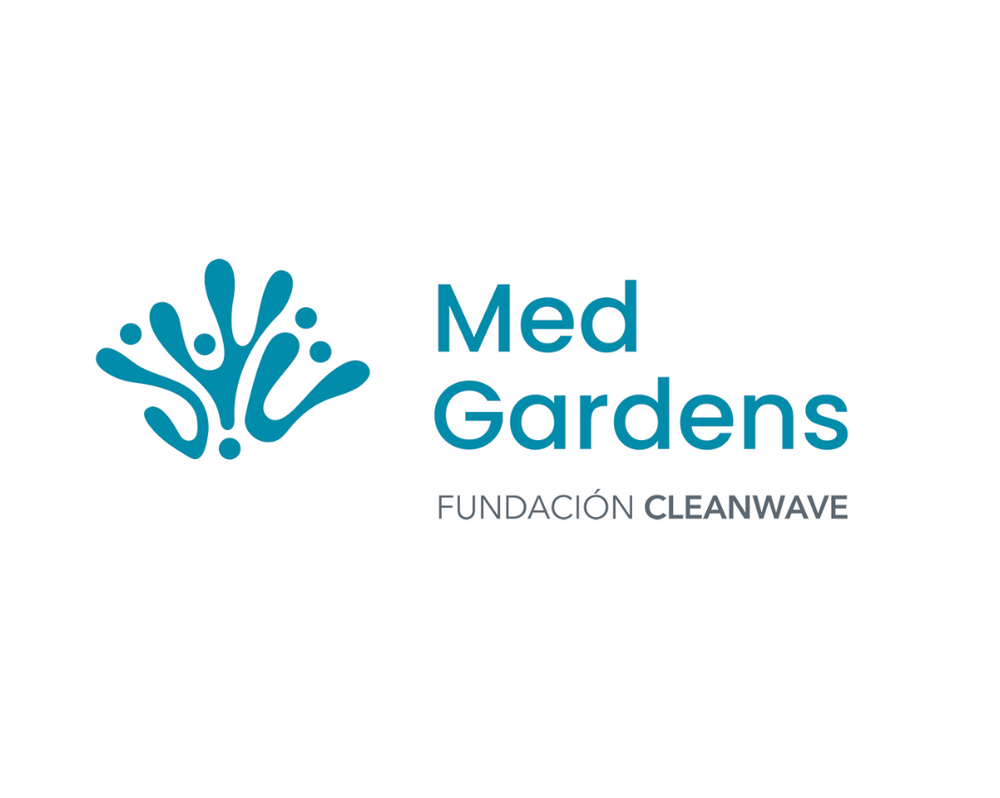
The Cleanwave Foundation
The Cleanwave Foundation is dedicated to promoting community projects aimed at conserving, protecting, and regenerating the land and sea in the Balearic Islands. One of its key initiatives is MedGardens, which shares the goal of making the Balearics a global leader in regenerative living by 2026.
Launched in June 2020 by José Escaño, the MedGardens project has since been supported by Laura Royo, Fiona Tomas and Tatí Benjumea, who joined the scientific team in September of that year. The development of MedGardens' community and scientific strategies has been informed by input from various inspirational and advisory individuals and entities.
Community and Restoration Impacts
The project has made significant impacts through community engagement and ecosystem restoration. Over 253 hours were dedicated to algae restoration, 168 hours to seagrass restoration, involving both the team and volunteers. Ecosystem restoration efforts included the transplantation of 136 seagrass plants, installation of 59 clay pieces seeded with juvenile Cystoseria s.l., and transplantation of 8.5 square meters of seagrass. Community engagement included participation in six forum sessions, documentation of three new marine citizen science observations, and fundraising of 25,000 Euros. The project covered restoration of a substantial marine area, totaling 10,000 square meters, showcasing the positive outcomes of concerted action in marine conservation.
A little further reading...
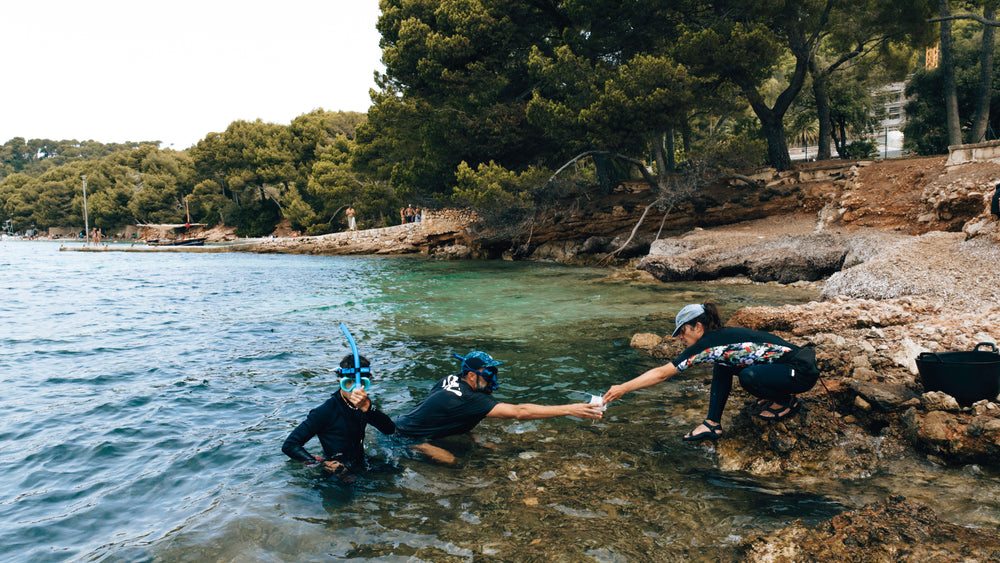
The Restoration Process
The project is currently developing 3 pilots in 3 different sites in Mallorca to restore seagrass (Posidonia oceanica) and canopy-forming seaweed forests (Cystoseira s.l.).
Sites will start with small scale experimental designs of different active restoration techniques to compare and validate the most efficient methodologies before scaling up in three years time.
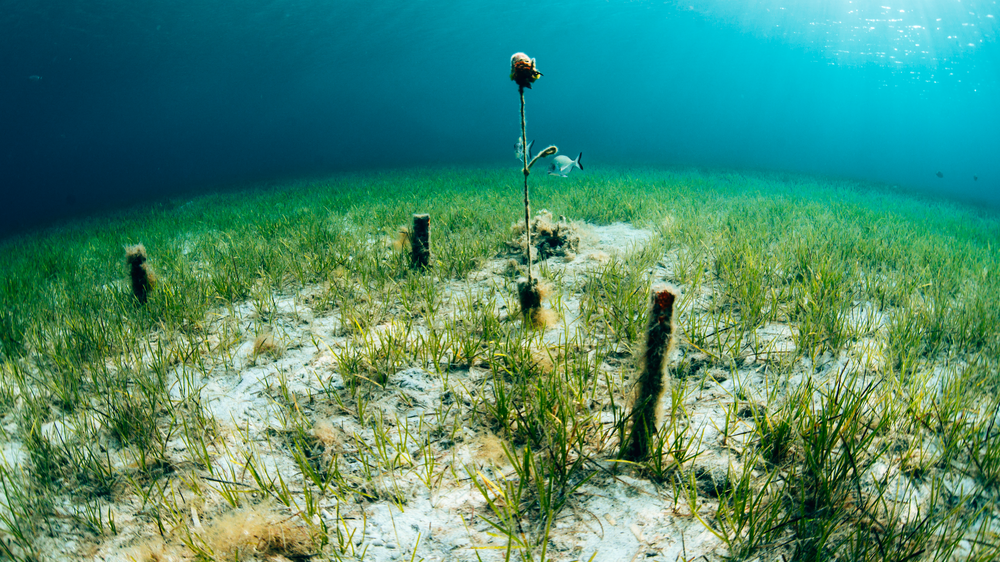
A Fragile Ecosystem Under Threat
In recent decades, seaweed forests have experienced significant declines and are under serious threat from human activities. Seagrass covers approximately 177,000 km2 worldwide, but between 7% and 19% of its current surface (roughly 33,000 km2) has been lost, equivalent to more than 4 million football fields. In the Mediterranean alone, an estimated 446 km2 (over 62,000 football fields) have been lost.
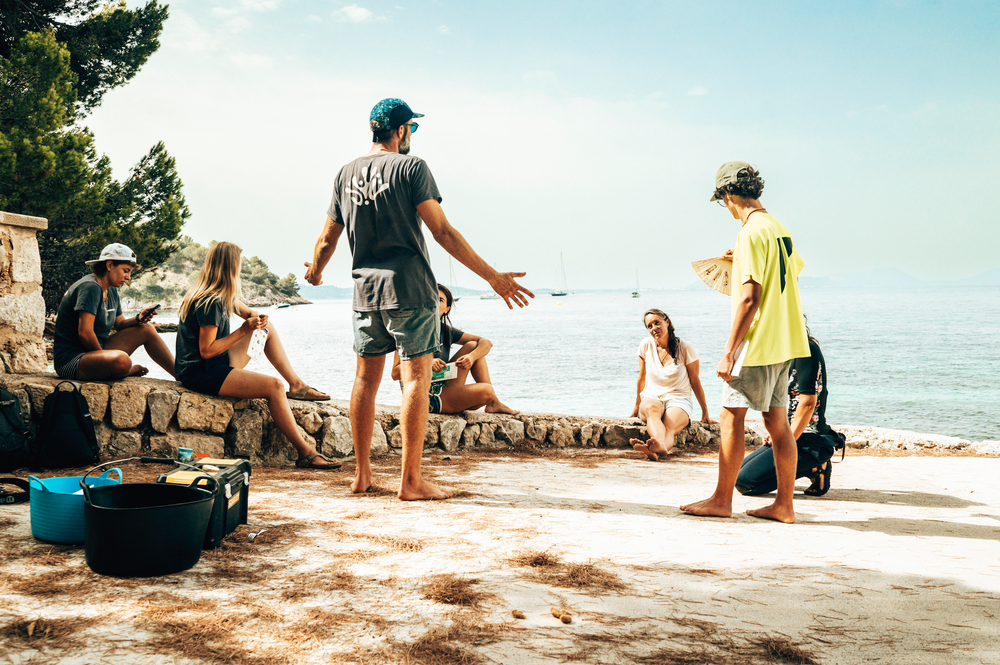
Sustainable Development
This project provides long-term employment for the local community. This in turn drives other Sustainable Development benefits.
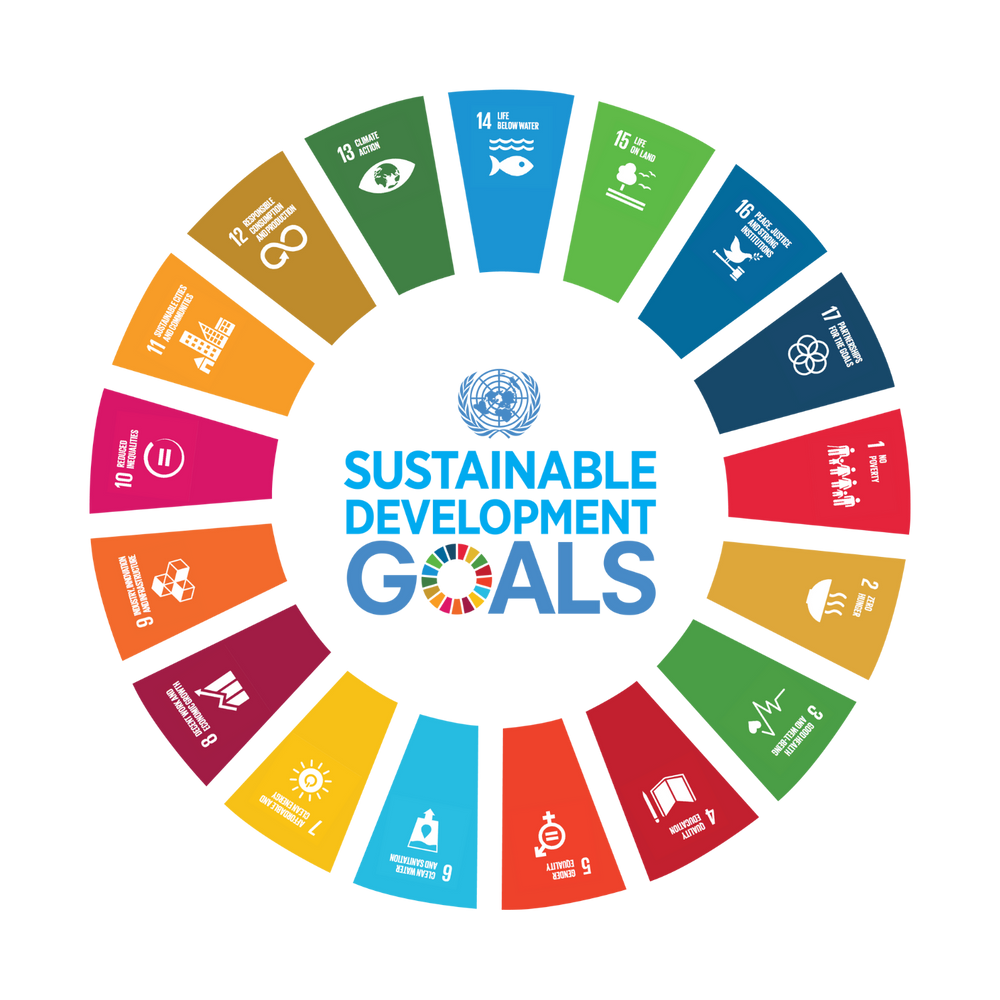
Sustainable Development in Spain
The holistic project employs a variety of methods to achieve its goals, including research, marine debris removal, community engagement through education, hands-on training and volunteer opportunities, educational signage, and the promotion of a blue economy. The project has also collaborated with local authorities to implement more sustainable mooring equipment, which is vital in an area with high boat traffic.
Community Engagement:
- 253+ Hours working in algae restoration (team + volunteers)
- 174+ Hours underwater working in algae restoration (team + volunteers)
- 168+ Hours working in seagrass restoration (team + volunteers)
- 66+ Hours underwater worked seagrass (team + volunteers)
- 6+ Forum sessions participated
- 3+ New marine citizen science observations in areas under restoration
- 25,000+ Euros raised
Ecosystem Restoration:
- 136+ seagrass transplants
- 59+ Clay pieces seeded with juvenile Cystoseria s.l. installed in the field
- 8.5+ Square meters of seagrass transplanted
- 10,000 Square meters of marine area under restoration
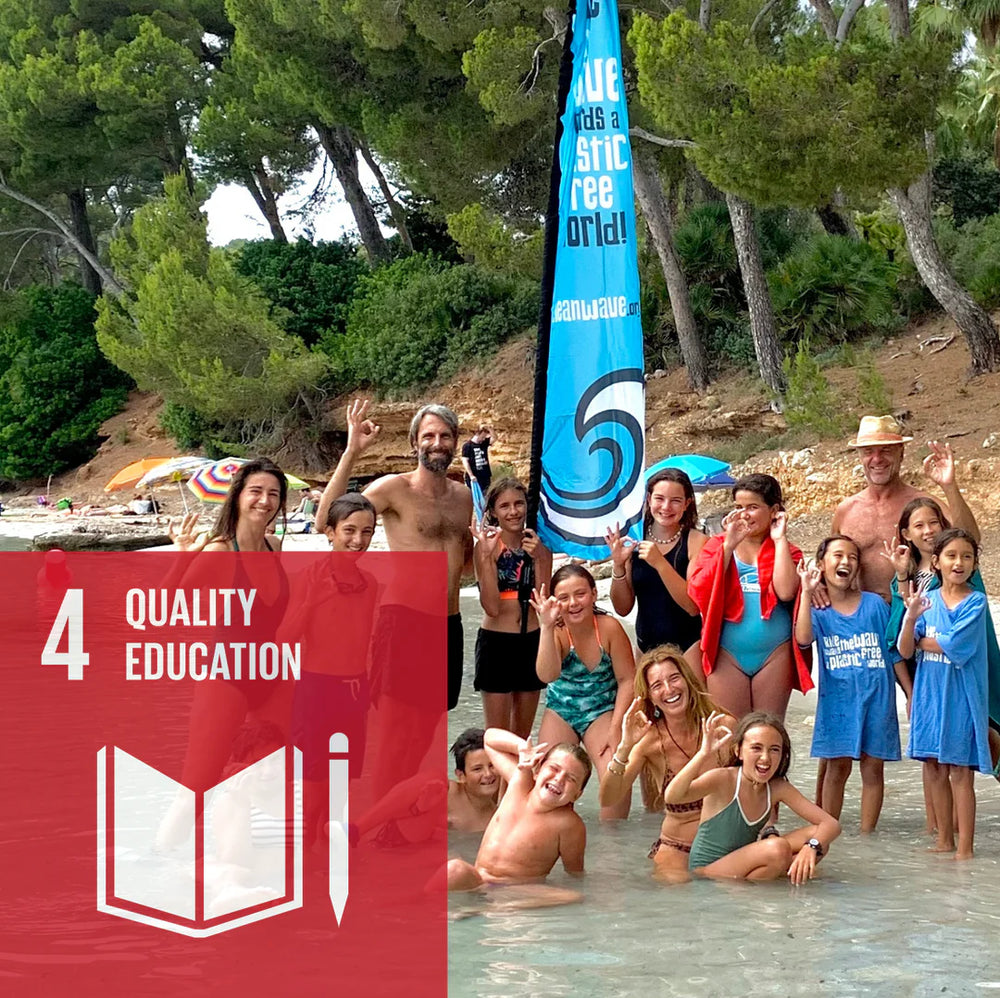
No Poverty
This project aims to eliminate gender disparities in education and ensure equitable access to all levels of education and vocational training for vulnerable populations, such as persons with disabilities, indigenous peoples, and children in vulnerable situations.
Additionally, it strives to equip all learners with the knowledge and skills necessary to advance sustainable development. Through educational programs focused on sustainable development and sustainable lifestyles, human rights, gender equality, the promotion of a culture of peace and non-violence, global citizenship, and appreciation of cultural diversity, the project actively supports the broader objectives outlined in the United Nations' Sustainable Development Goals.
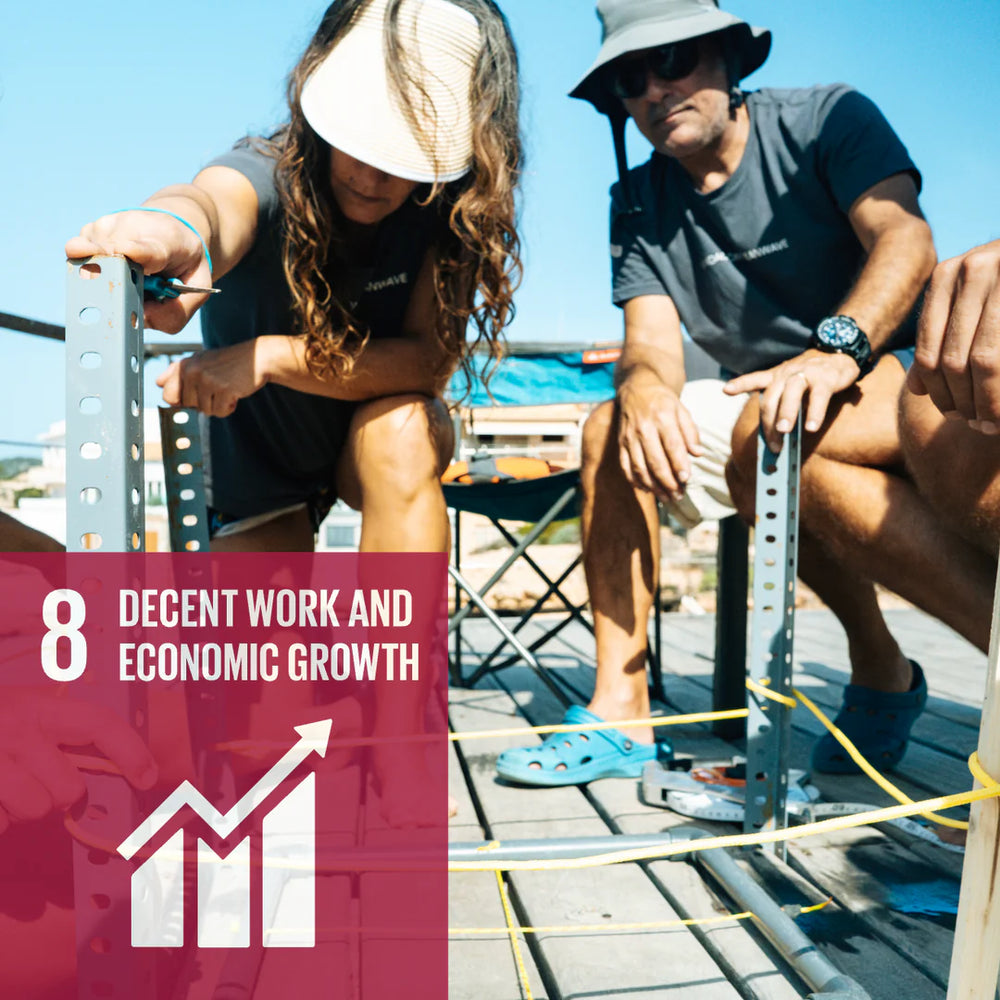
Decent Work
This project aiming to develop and implement policies fostering sustainable tourism that not only generates employment but also advocates for the preservation and promotion of local culture and products by 2030.
Additionally, it seeks to enhance global resource-efficient production and consumption practices by 2030. The project aspires to decouple economic growth from environmental degradation, aligning with the 10-Year Framework of Programmes on Sustainable Consumption and Production Patterns. This commitment is particularly pertinent to developed countries, signaling a progressive effort towards a more sustainable and responsible economic model.
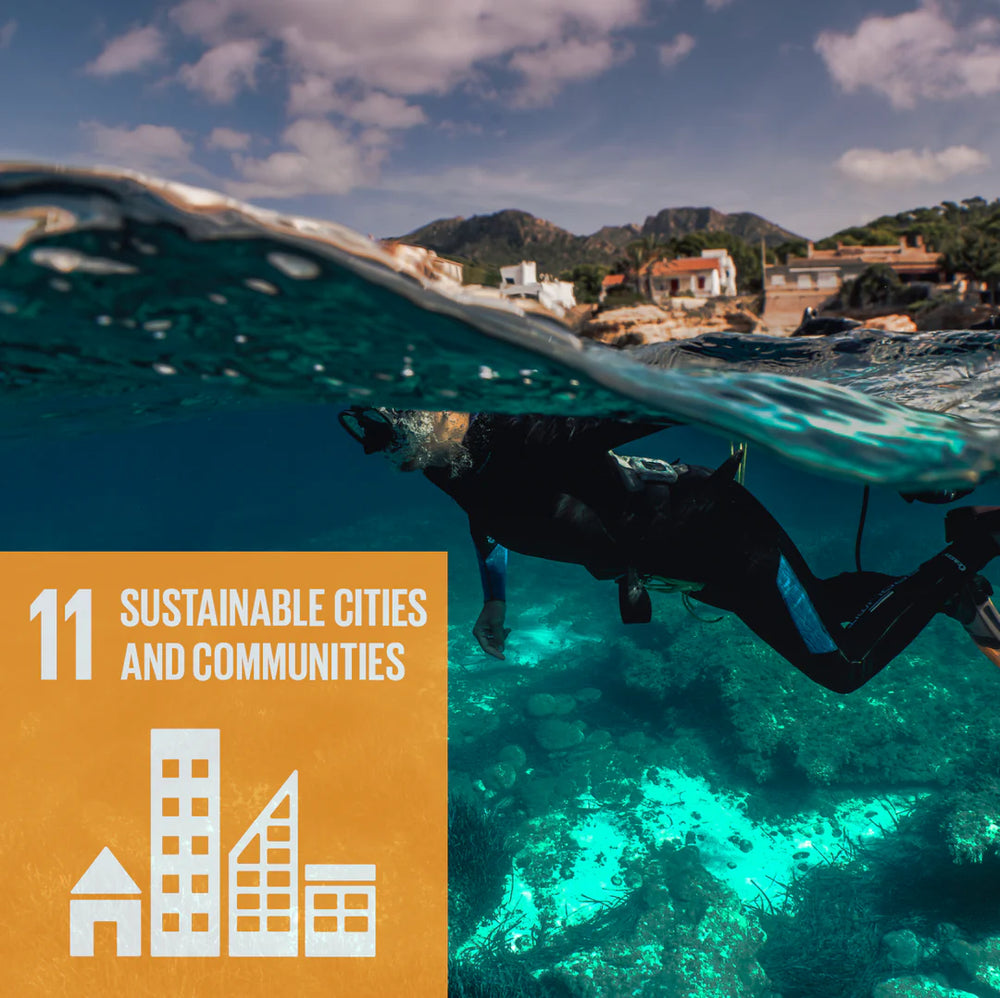
Sustainable Cities
This project supports positive economic, social, and environmental linkages between urban, peri-urban, and rural areas through the reinforcement of national and regional development planning.
Furthermore, the project actively works towards the adoption and implementation of integrated policies and plans in cities and human settlements to foster inclusiveness, resource efficiency, climate change mitigation and adaptation, disaster resilience, and integrated disaster risk management at all levels.
This project also redoubles efforts to protect the world's cultural and natural heritage and striving to reduce the negative per capita environmental impact of cities by 2030, with a specific focus on air quality and the management of municipal and other waste.
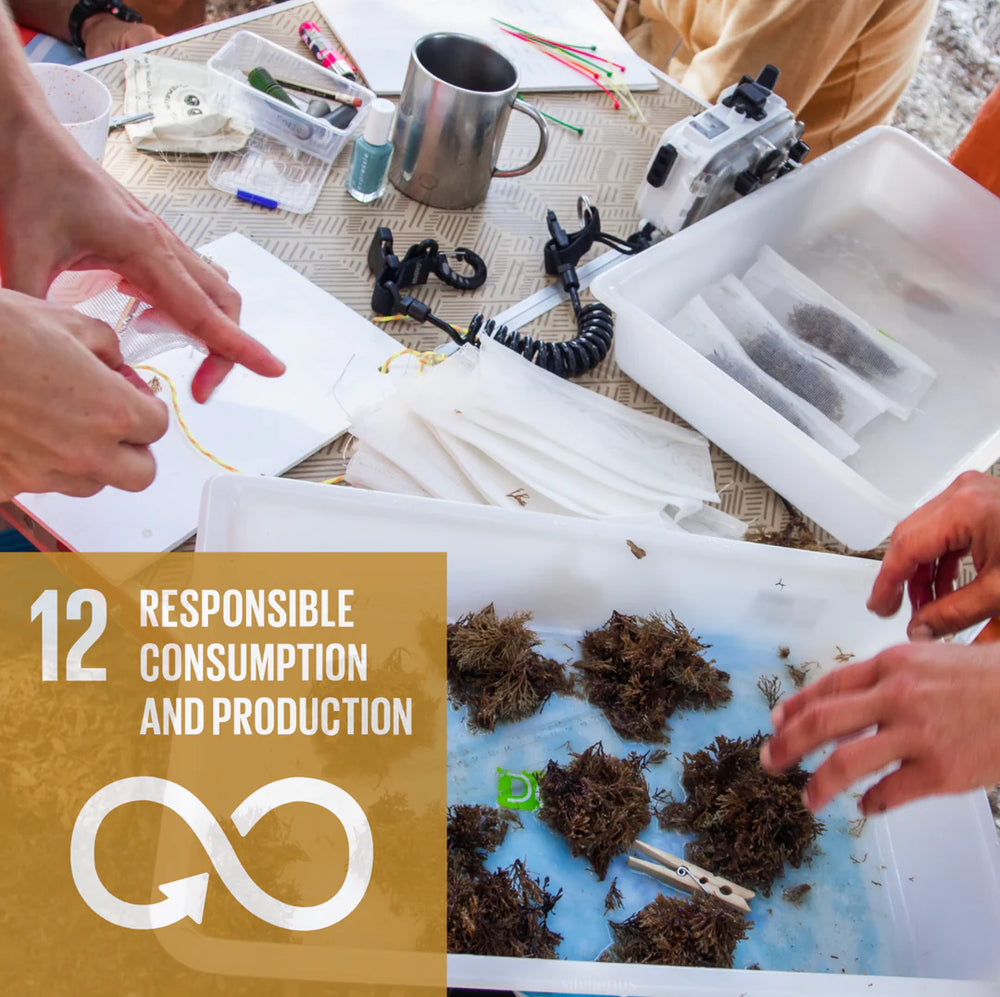
Responsible Consumption
This project's primary goal involves achieving sustainable management and efficient use of natural resources by the year 2030. The initiative further supports this by developing and implementing tools to monitor the impact on sustainable development, particularly aiming at creating sustainable tourism that generates employment and promotes local culture and products.
This project strives to achieve environmentally sound management of chemicals and all wastes, reduce waste generation through prevention, reduction, recycling, and reuse activities, encourage sustainable practices among companies, ensure universal access to information relevant to sustainable development and lifestyles in harmony with nature, and assist developing countries in strengthening their scientific and technological capacity to move towards more sustainable patterns of consumption and production.
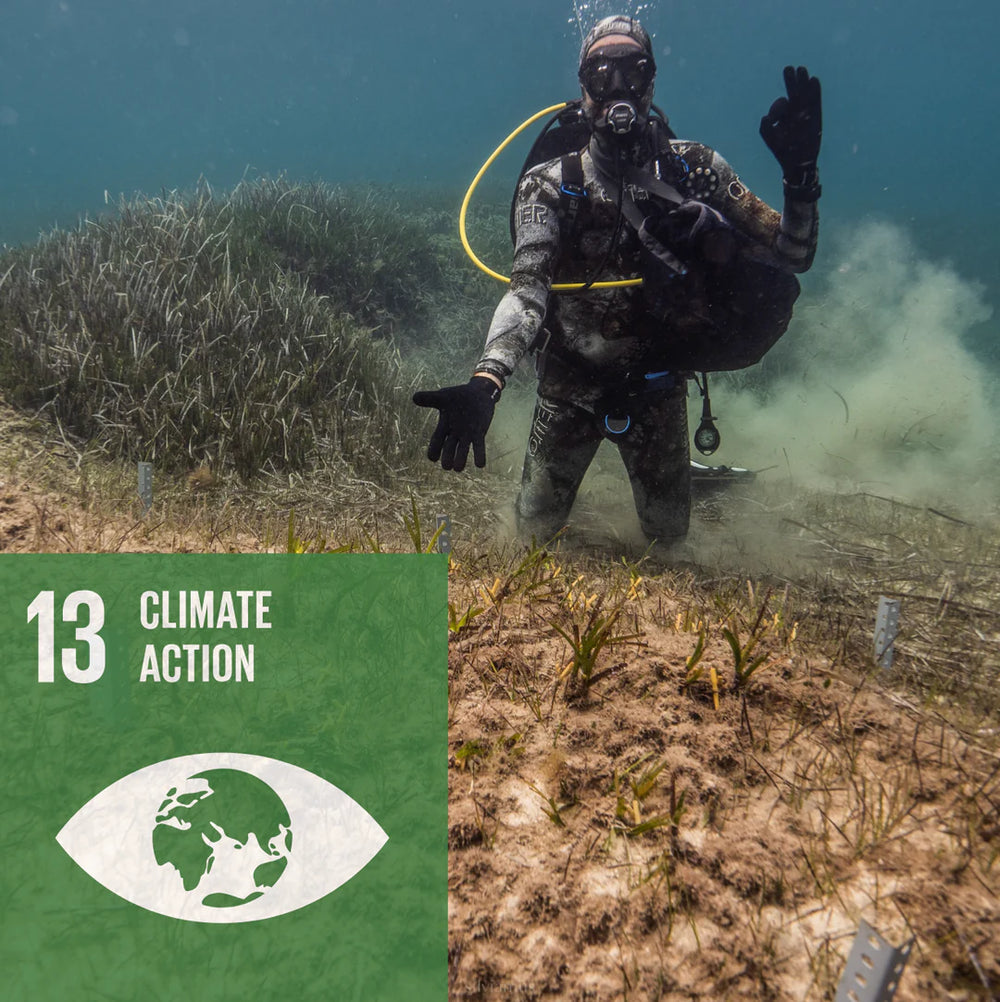
Climate Action
This project strengthens resilience and adaptive capacity to climate-related hazards and natural disasters in all countries.
It also addresses the imperative to enhance education, awareness, and human and institutional capacity for climate change mitigation, adaptation, and early warning systems. By actively engaging in efforts to build resilience and bolster adaptive capabilities globally, as well as promoting education and awareness to combat and respond effectively to climate challenges, the project aligns with the broader goals of fostering climate resilience and mitigating the impacts of climate-related risks and disasters.
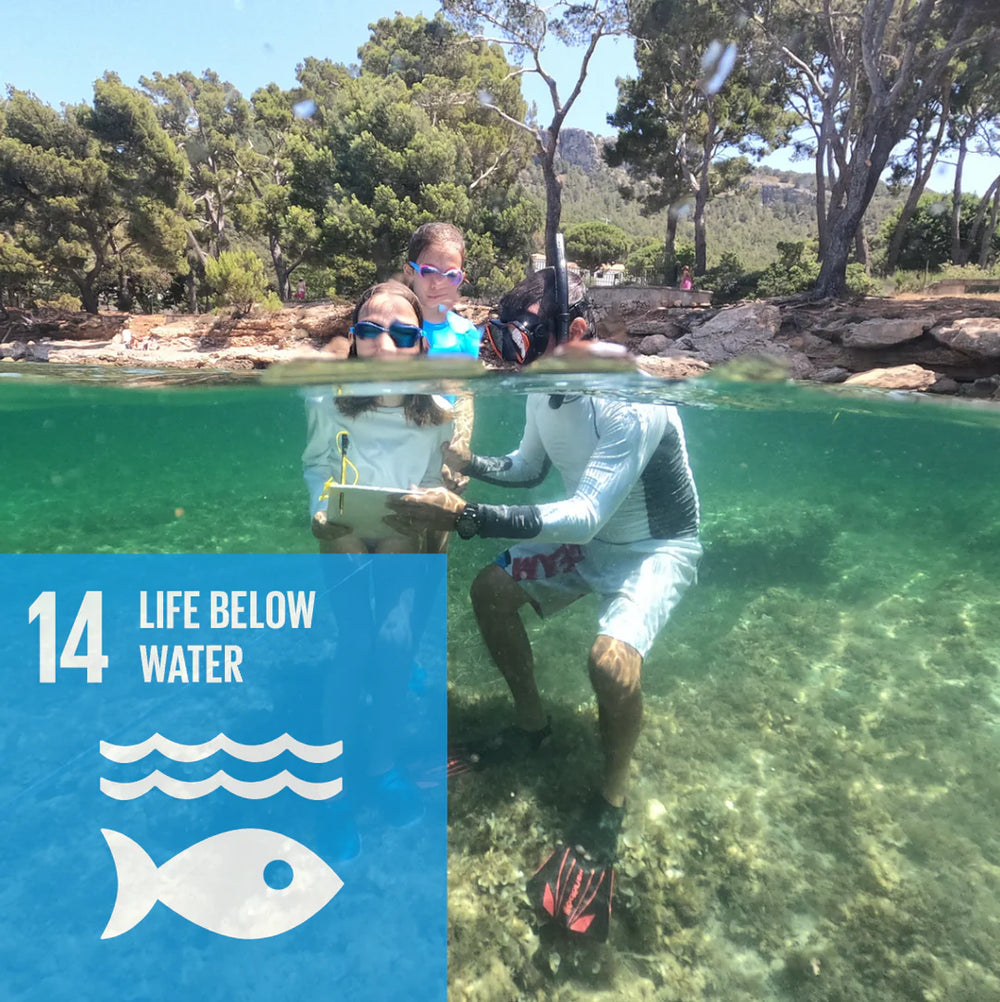
Life Below Water
This project actively addresses ocean acidification effects, aims to conserve 10% of coastal and marine areas by 2020, and seeks to increase economic benefits for small island developing States and least developed countries from sustainable marine resource use by 2030.
It also emphasizes enhancing scientific knowledge, research capacity, and the transfer of marine technology for developing countries, particularly small island developing States. Additionally, it underscores the importance of implementing international law, specifically the United Nations Convention on the Law of the Sea, to promote the conservation and sustainable use of oceans and their resources.
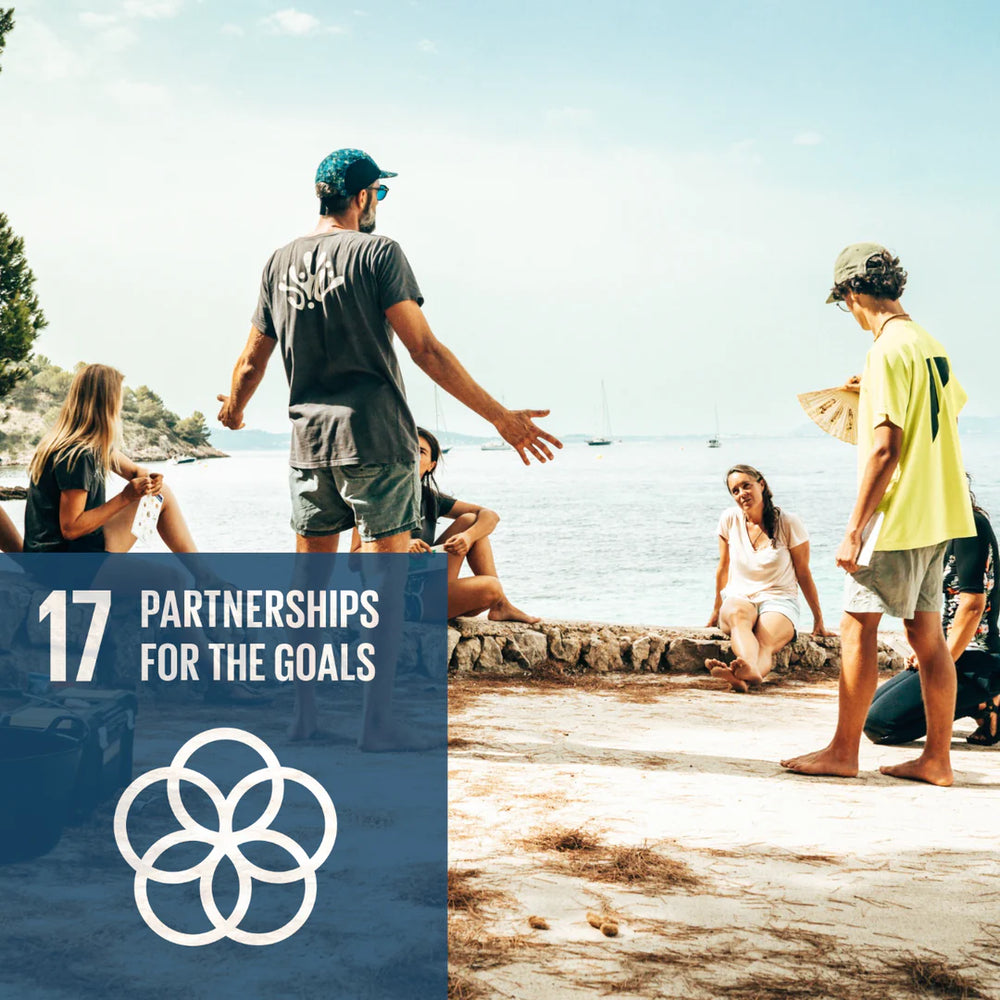
Partnerships for the Goals
This project encourages effective collaborations in public, public-private, and civil society spheres, drawing on partnership experience and resourcing strategies.
Additionally, it contributes by enhancing the Global Partnership for Sustainable Development, utilizing multi-stakeholder partnerships to mobilize knowledge, expertise, technology, and financial resources. The goal is to collectively support the achievement of Sustainable Development Goals worldwide, particularly in developing countries. Through these efforts, the project actively fosters a collaborative and inclusive approach to address global challenges and promote sustainable development.

